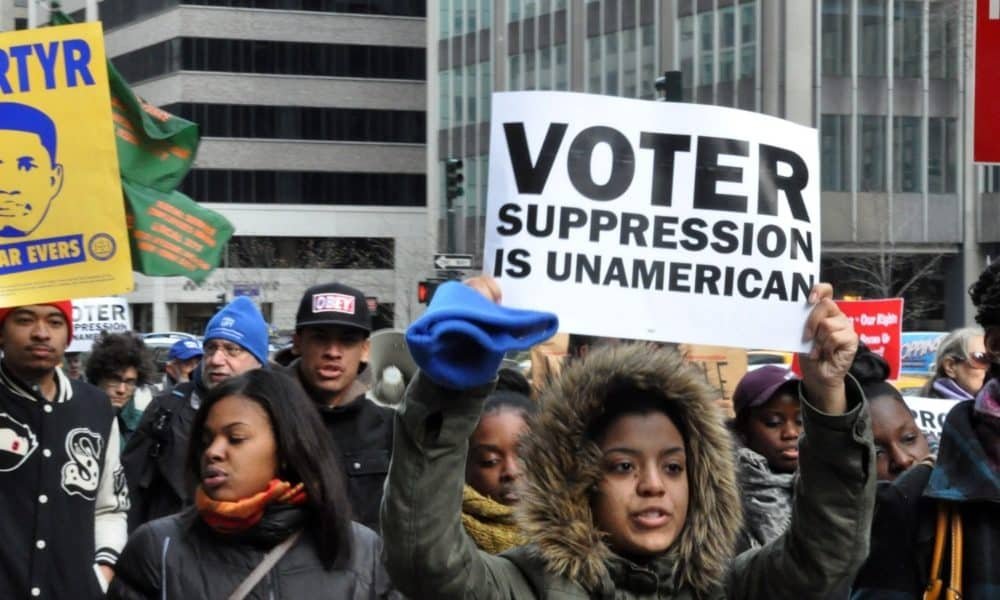Movements like the Voting Rights Advancement Act have highlighted the critical need for equal ballot access in the quest for a truly representative government. This article illustrates the importance of ongoing efforts to ensure fair and just voting practices by delving into history, examining current challenges, and projecting future possibilities. Through continued advocacy, education, and legal action, we can strive toward a democracy where every voice is heard, and every vote truly counts, fostering a society that reflects the diversity and inclusivity of its citizens. It’s essential to uphold and expand upon the progress made in the fight for voting rights to safeguard the integrity of our democratic institutions for generations to come.
A Glimpse Into the History of Voting Rights
A series of hard-fought battles and significant legislative milestones mark the history of voting rights in America. Each Amendment and law passed since the nation’s founding has reflected a growing acknowledgment of the importance of inclusivity in the democratic process. The 15th Amendment marked a pivotal point, prohibiting voter discrimination based on race, color, or previous condition of servitude. The 19th Amendment eliminated gender discrimination at the polls, setting a precedent for women’s political engagement that resonates powerfully today. The landmark Voting Rights Act of 1965 targeted the systemic barriers faced by racial minorities, particularly in the Southern states, and has since been hailed as a bedrock of civil rights legislation.
Current Challenges in Voting Rights
The struggle for equal voting rights continues, even after many legislative victories. A host of current challenges threaten the integrity of the democratic process. Some voters, particularly in marginalized communities, encounter formidable obstacles such as overly stringent voter ID laws, meticulous purges of voter rolls, gerrymandering, and limited access to polling locations. Such practices undermine the very principles of democracy by creating an unequal playing field for electors. Recognizing and addressing these tactics is essential for maintaining a system where every vote counts. Efforts to combat these challenges include advocacy for voting rights legislation, increased voter education initiatives, and legal action to challenge discriminatory practices. Progress toward a more equitable electoral system can be made by mobilizing communities and holding policymakers accountable. It’s imperative that citizens remain vigilant and engaged in protecting voting rights to uphold the foundations of democracy for future generations. The Voting Rights Advancement Act aims to address discriminatory voting practices and ensure equal access to the ballot, promoting fairness and inclusivity in the electoral process.
Technology and the Modern Voter
In today’s digital era, technology has streamlined and complicated voter engagement. On the one hand, electronic poll books, online registration systems, and digitized information platforms can enhance voter accessibility and convenience. On the other hand, the threat of cyberattacks, misinformation campaigns, and digital disenfranchisement raises significant concerns. To fully harness the benefits of technology in elections, comprehensive security protocols and widespread digital literacy efforts are necessary to protect the electronic frontier of democracy.
Technology’s Impact on Voting Accessibility
As more and more of our daily interactions move online, digital tools have become a powerful medium for voter engagement. Websites and apps designed for voter registration can reach demographics that have traditionally been underrepresented in the electorate. Yet, the expansion of such technologies raises critical questions about accessibility for communities lacking robust internet access or digital literacy. The pursuit of technological solutions in voting must proceed with a deep commitment to inclusivity, ensuring that all citizens, regardless of their economic status or technical know-how, have equal ability to exercise their voting rights.
Empowering the Youth Vote
Youth voters are poised to bring fresh perspectives to the political dialogue, and champion causes that resonate with younger generations. Mobilizing this population segment can have a transformative impact on policy and political engagement. However, engaging young voters requires addressing their concerns, facilitating access to polls, and providing comprehensive civic education. By empowering the youth with knowledge and tools to navigate the voting landscape, we can foster a generation of informed and active contributors to our democratic system.
Grassroots Movements and Their Significance
Grassroots efforts have been instrumental in effecting change within the domain of voting rights. From documenting instances of voter suppression to campaigning for legislative reform, these community-focused organizations are vital advocates for a fair electoral system. They employ ground-level strategies to educate, register, and mobilize voters, working tirelessly to turn the tide against disenfranchisement. The strength of these movements lies in their ability to channel the collective power of individual voices, encouraging widespread participation in the democratic process from the ground up.
Understanding the Changing Legal Landscapes
The legal framework governing voting rights is dynamic and subject to interpretation through judicial review. While some court decisions have expanded voting access, others have had the opposite effect, highlighting the ongoing tension within this domain. Notable shifts include the Supreme Court’s 2013 ruling in Shelby County v. Holder, which struck down critical provisions of the Voting Rights Act, raising concerns about the potential resurgence of discriminatory practices. Keeping abreast of such legal changes is essential for any stakeholder looking to understand the current and future state of voting rights in the United States.
Educational Initiatives for an Informed Electorate
An informed electorate is the cornerstone of a functioning democracy. Education on voting rights and processes empowers citizens to exercise their civic duties fully. Initiatives explaining how, when, and where to vote are critical, mainly as voting laws vary from state to state. Such educational endeavors facilitate voter participation and encourage advocacy to protect and enhance voting rights. Citizens who understand the stakes involved in each election are more likely to remain engaged and motivated to rally for improvements within the system.
Prospects for Future Voting Rights Advancements
Looking ahead, the future of voting rights is poised to converge with technological innovation, demographic shifts, and legal judgments. Vigilance will ensure that advancements like the Voting Rights Advancement Act fulfill their intended purpose without unintended consequences. As we consider how best to protect and expand the hard-won rights of voters, we must continue to advocate for legislation that ensures simplicity, security, and equity in the electoral process—offering every eligible citizen an equal chance to shape the governance of their community and their country.







